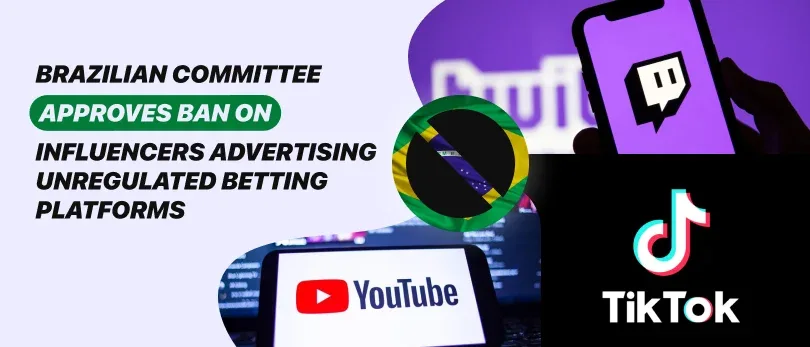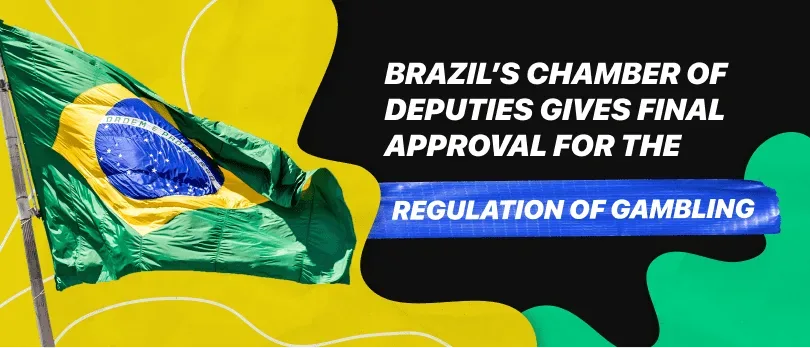
Regulations for Influencers: Brazilian Committee approves ban on influencers advertising unregulated betting platforms
In a significant move, Brazil’s Chamber of Deputies Communication Committee has approved a proposal (Bill 3915/2023) aimed at preventing social media influencers from advertising unregulated gambling websites. The approved proposal will now undergo scrutiny in two additional committees before reaching a plenary session in the Chamber of Deputies for further discussion. Today, let’s delve into the specific regulations that Brazil is considering for influencers in this context.
Proposed Regulations for Influencers
Should the proposal be enacted into law, online influencers will be barred from promoting gambling activities with unlicensed operators through videos, stories, or any other online media formats.
Providers of internet applications, including platforms such as Twitch, YouTube, TikTok, and others, will be required to cooperate with authorities in actively monitoring and swiftly removing content that breaches the regulations outlined in the proposed law. These providers must set up mechanisms for receiving complaints and ensure prompt responses to instances of violations.
The proposal also introduces several other regulations for influencers, including the necessity to transparently indicate the commercial nature of any advertising content. Additionally, all gambling-related content must include details about the entities funding the betting activities.
Under the proposed rules, influencers must incorporate information about the potential adverse effects of gambling. Furthermore, any collaboration between influencers and advertisers must be governed by a written contract. Non-compliance with these regulations could lead to a suspension of influencers’ activities for up to 6 months, while social media companies could have fines worth up to 2% of their revenues levied against them for failing to comply with the ban.
A violation could also lead to a permanent ban as an influencer. However, it isn’t clear how Brazil would enforce it.
Background of the proposal
Federal Deputies Fred Linhares and Ricardo Ayres presented the proposal. Ayres emphasized that the legislation’s objective is to curb the “irresponsible disclosure of betting companies by influencers.”
Linhares highlighted the measure’s relevance in the context of Brazil’s evolving regulated gambling sector, given the substantial influence these public figures have on their followers’ behavior and decisions.
Government Initiatives and Sports Betting Regulations
Beyond restricting influencer endorsements, the federal government aims to raise awareness about gambling risks through collaborative campaigns with educational institutions and healthcare professionals.
This proposal aligns with Brazil’s ongoing efforts to regulate sports betting. Sports betting was first legalised in 2018, but the country’s regulated market is yet to launch.
Recently, the Senate approved the bill containing sports betting regulations, sending it back to the Chamber of Deputies for final approval. Notably, a clause allowing regulated iGaming was removed before the bill’s approval.
Licensed sports betting operators in Brazil will face a 12% tax on Gross Gaming Revenue (GGR) and must adhere to rules concerning responsible gambling, advertising, and the safeguarding of sports integrity. Once approved by representatives in the lower house, the bill can be signed into law by President Luiz Inácio Lula da Silva.
